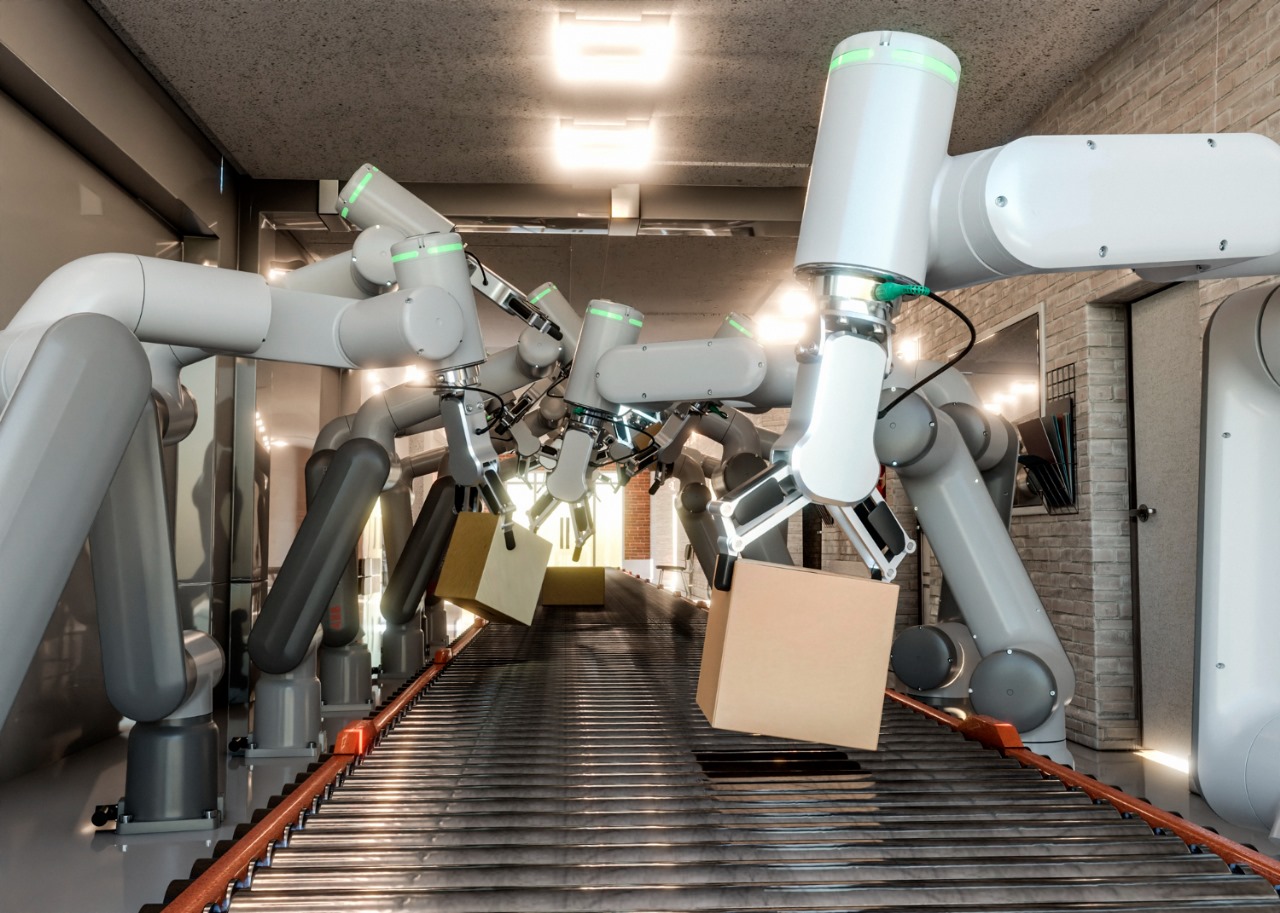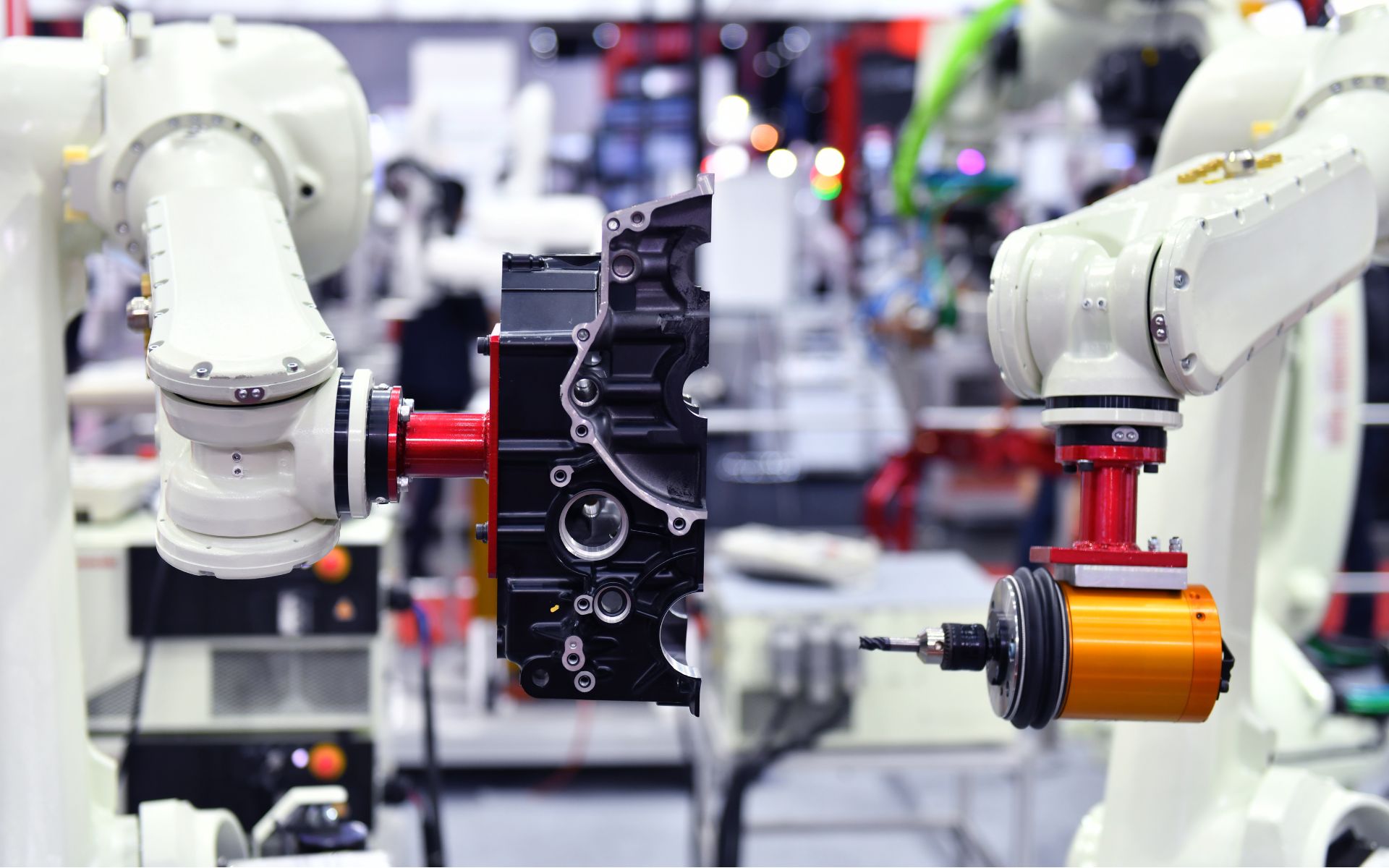In recent years, the manufacturing industry has been revolutionizing at a rapid pace, primarily driven by advancements in automation technology. According to a report by the International Federation of Robotics, the global demand for industrial robots has surged, with over 2.7 million units now in operation worldwide – a clear indicator of automation’s growing impact.[1] The emergence of automated packaging and custom automation services has significantly contributed to this transformation, enhancing efficiency, reducing costs, and improving product quality.
The Evolution of Manufacturing Automation
A New Era in Production
Manufacturing automation represents the application of various technologies and control systems to operate equipment and manage processes with minimal human intervention. This shift towards automated systems has been a catalyst for change, bringing about increased productivity, better resource management, and enhanced safety protocols in factories.
The Impact on Workforce and Skill Development
While automation has reduced the need for manual labor in some areas, it has simultaneously created opportunities for skilled workers proficient in robotics, programming, and system maintenance. The evolution of the workforce underscores the dynamic nature of the industry in response to technological advancements.
Automated Packaging: A Cornerstone of Modern Manufacturing
Speed and Efficiency
Automated packaging systems are the linchpins in the manufacturing process, enabling faster and more efficient packaging of products. These systems outpace manual methods, significantly enhancing throughput and allowing manufacturers to meet increasing market demands.
Accuracy and Consistency
Automated packaging ensures that each product is uniformly, adhering to quality standards. This consistency is crucial for maintaining brand reputation and customer satisfaction, as it minimizes manual packaging errors.
Cost-Effectiveness and Scalability
While the initial setup costs for automated packaging systems can be high, they offer long-term financial benefits. Reduced labor costs and increased production speed result in a faster return on investment. Additionally, these systems can scale with the growth of the business, providing a sustainable solution for expanding operations.
Custom Automation Services: Personalized Solutions for Unique Needs
Tailored Automation
Custom automation services involve developing unique solutions that cater to the specific requirements of a manufacturing process. This approach particularly benefits industries with specialized products or complex manufacturing sequences.
Seamless Integration
Custom automation services excel in their ability to integrate with existing manufacturing systems. This seamless integration ensures that new automated solutions complement and enhance current processes without necessitating a complete overhaul of existing infrastructure.
Competitive Advantage
Custom automation allows manufacturers to stay ahead of the curve, offering innovative solutions that optimize production, minimize waste, and improve overall product quality. This edge is crucial in a market where efficiency and innovation are key drivers of success.
The Environmental and Economic Impact of Automation
Eco-friendly Manufacturing
Automation contributes significantly to environmental conservation in manufacturing. Automated systems are designed for precision, reducing material waste, and optimizing energy use. This efficiency translates into a smaller ecological footprint, aligning with global sustainability goals.
Economic Benefits
The economic impact of automation in manufacturing is profound. By streamlining processes and reducing operational costs, automation drives profitability. It also opens up markets by enabling manufacturers to produce goods at competitive prices, thereby fostering economic growth.
Overcoming Challenges in Automation
Navigating Initial Costs
One of the primary challenges in implementing automation is the initial capital investment. However, with strategic planning and the right financial models, businesses can effectively manage these costs and realize a quick return on investment.
Addressing the Skills Gap
The shift towards automation requires a workforce with new skills and competencies. To address this, manufacturers must invest in training and development programs, ensuring their employees are equipped to handle the demands of an automated environment.
Ensuring Cybersecurity
As manufacturing processes become more connected through automation, the risk of cyber threats increases. Implementing robust cybersecurity measures is essential to protect sensitive data and maintain the integrity of automated systems.
Future Trends in Manufacturing Automation
The Role of AI and Machine Learning
Artificial Intelligence (AI) and Machine Learning (ML) are set to play pivotal roles in the future of manufacturing automation. These technologies enable smarter, more adaptive systems capable of optimizing processes and predicting maintenance needs.
Collaborative Robotics
Collaborative robots, or cobots, are designed to work alongside humans, enhancing productivity and safety. These robots are becoming increasingly common in manufacturing settings, signifying a trend toward more interactive and flexible automation solutions.
Internet of Things (IoT) Integration
The integration of IoT in manufacturing automation allows for real-time data collection and analysis, leading to more informed decision-making and process optimization. This connectivity is a cornerstone of the Industry 4.0 revolution.
Conclusion
Automation is not just a trend in manufacturing; it’s a necessity for any business aiming to remain competitive in today’s market. Automated packaging and custom automation services offer tangible benefits, including increased efficiency, cost savings, and improved product quality.
For manufacturers seeking to leverage these advantages, collaboration with experienced automation service providers like World One Automation is crucial. Our expertise in delivering cutting-edge automation solutions can help businesses navigate the complexities of modern manufacturing and emerge as leaders in our respective industries.


